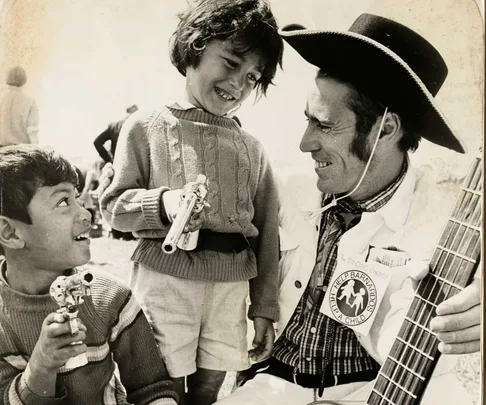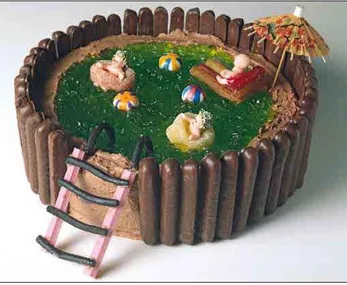As far as icons go, Jock Hume is an unassuming one. No brass statue; no fancy knighthood. Just an array of cowboy outfits and a guitar. When you’re a singing cowboy, that’s what counts.
Jock has played throughout New Zealand under the Singing Cowboy moniker since 1970. In the early days, he was the guy in a leather hat and Cuban heels, belting out The Streets of Laredo as people hurrying by hiffed a few coins into his guitar case.
A lot of cowboys have bitten the dust since then. Still, Jock strummed on. But recently, the seemingly evergreen cowboy, who turns 70 this year, began using the word “retirement”
in his sentences. He’d circled February 2017 in red pen.
Despite being a familiar face to thousands of Kiwis, the story of how Jock became the Singing Cowboy has never been told.
It’s more than a story of a man and his music. It’s really a story of a man who saved himself, one song at a time.
Born in Auckland in 1947, the fourth of five kids, he was an ace tennis player. His father was “proud of him for that”, says Jock’s sister Mary (79). But the old-school bank manager expected his three sons to excel at everything – and Jock copped it the worst.
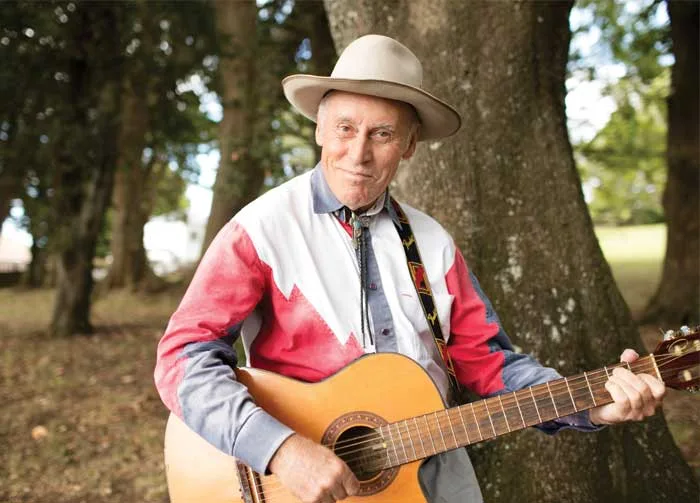
Mary had gone flatting by the time Jock began feeling crushed by his father’s expectations that he should be an “A” student.
“Dad was a good man in many ways, but he was a very dominating personality,” explains Mary, a former school teacher.
“He used the evening meal time to scold Jock.
“Mum told me Jock would stop eating and a sick look would come over his face. He would put his knife and fork down, and ask to be excused. It was tragic because it tied together the business of eating with stress.”
Says Jock, “I had a nervous breakdown. I wasn’t coping with my school work. I didn’t have an appetite, wasn’t sleeping properly. I lost a lot of weight.”
Aged 17 and weighing just 32kg, he was admitted to the psychiatric ward at Auckland Hospital. He describes his time there as “wonderful, wonderful, wonderful. Nice atmosphere, good food.”
Three months later, he’d “come right”.
He finished school and then tried his hand at a number of jobs. As office boy at general merchants L.D. Nathan, he lasted 10 months – “the longest job I’d ever had” – before his “nervous system collapsed” and he had to throw it in.
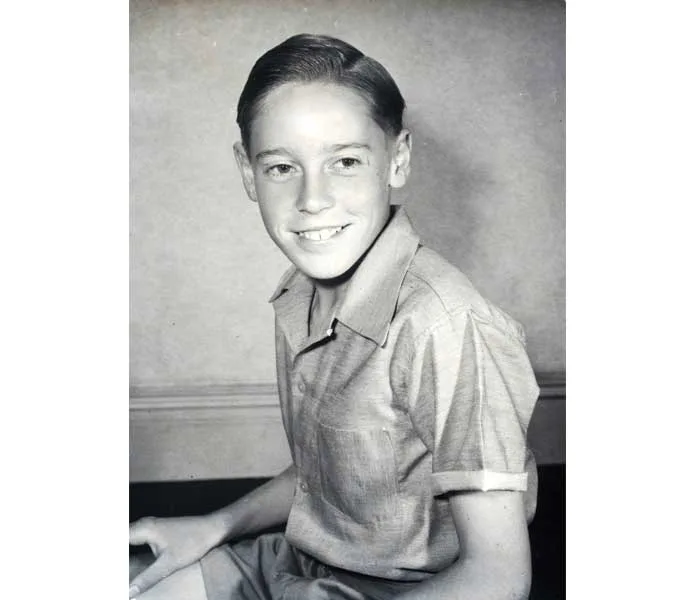
Jock felt crushed by his father’s expectations during his teens.
Accepting that he was unable to cope with the hurly-burly of the traditional workplace, Jock could have fallen through the cracks. He might have, except for an idea he had in 1970.
“I was sitting on the porch in the sunshine when I thought, ‘Gee, wouldn’t it be nice to be an entertainer?’ I knew a few songs on the guitar, so I bought a cowboy outfit and got cracking on learning some more songs.”
He also placed an ad in his local paper, touting his services for children’s parties, weddings and 21sts. The anxiety he’d experienced as a young man didn’t translate into stage fright. In fact, it was the opposite. He loved an audience.
Before long, the phone was ringing off the hook.
“The feeling was just marvellous,” smiles Jock. “It really was the whole turn-around of my life.”
In the early ‘80s, when busking was legalised in Auckland, he was first cowboy out of the chute. With his permit in his pocket, he headed for Queen St.
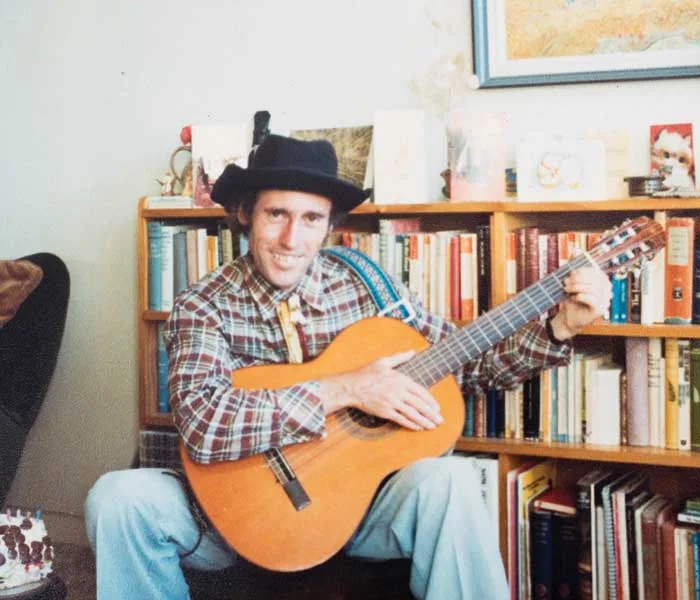
“I struck one or two real narks,” he laughs. “Some looked on it as a form of begging and occasionally someone would help themselves to $2 out of my guitar case. I’d say, ‘Hey, give that back,’ and they’d say, ‘I need it for my bus fare home’.”
But his experiences were mostly positive – and sometimes surprisingly lucrative. A tourist once emptied a pile of $20 notes into his guitar case and walked off.
“I’m a very honest person so I went down to the police and told them what had happened. They said, ‘That’s alright. Nothing we can do.’ It was $600.”
Jock slowly became an identity in the busking world. Mary laughs about the time she was hanging out the washing on their balcony in Grey’s Ave.
“Two little boys were walking along. One of them said, ‘That’s where the Singing Cowboy lives’. Then he saw me and he said, ‘And that’s the cowboy’s sister’. I thought, ‘Well, that’s my role in life. I’m the cowboy’s sister!’”
The family, she says, “was thrilled that Jock had found his niche and that the pressure to get a ‘proper job’ had been taken off him. Music has been his lifeline.”
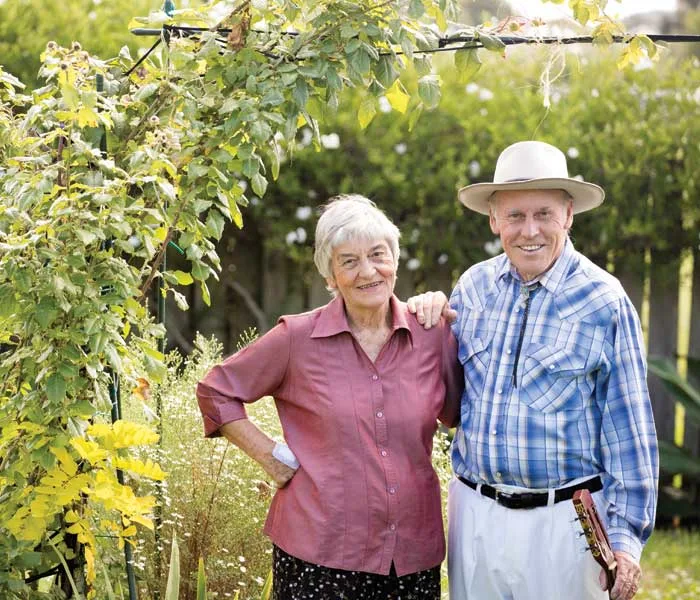
Jock and his sister Mary have lived together for most of their lives.
Jock and Mary have shared a house for most of their lives and in 2005, she told him to put on his glad rags for the Variety Artists Club of New Zealand awards night. What she didn’t tell him was that he was going to be awarded the Unsung Hero prize for his years of entertaining.
“The shock of it!” he laughs. “I just about shot up in the air. That, I would say, would be the big climax of my career.”
While the demand for Jock’s services has slowed down in recent years, the phone still rings for event bookings. And his busking schedule sees him performing throughout the country. Hitchhiking is his preferred mode of transport.
Asked if he’s still serious about retiring this year, he looks sheepish, which, when you think about it, is kind of ironic for a cowboy.
“I was disillusioned with the way things were slowing down last year,” says Jock. “The phone wasn’t ringing much, but even though I sort of said to people I will retire… I probably won’t give up completely.”
Words: Megan McChesney
For more from New Zealand Woman’s Weekly, visit our Facebook page, and follow us on Instagram.
